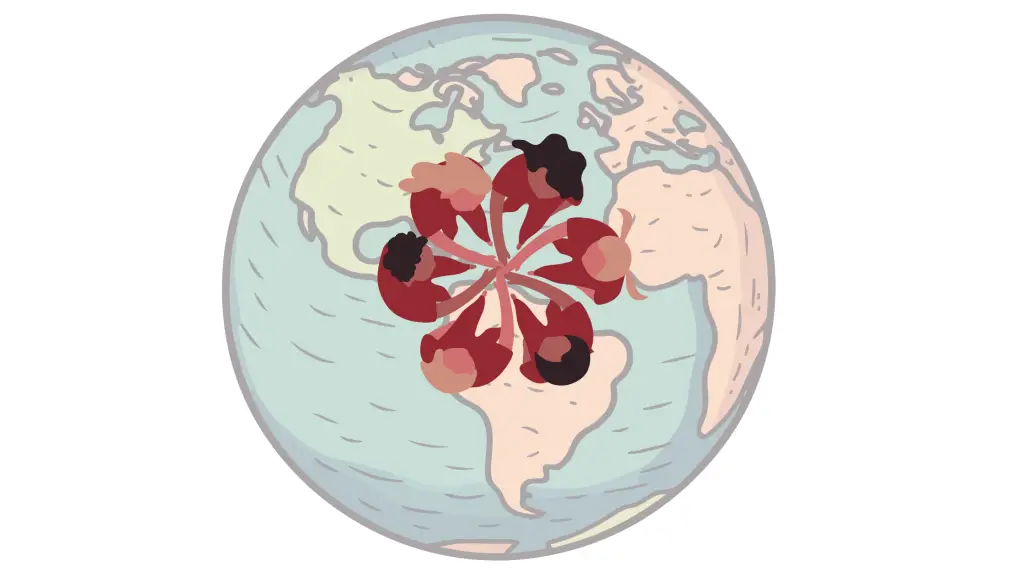As per usual, as a new year begins, I take some time to look at my life — where I’ve been, where I am, and where I’m going. Both literally and metaphorically.
2025 will mark the ninth year of living away from my birthplace, and the fifth year living away from my home country.
I don’t exactly know why, but in the last few weeks, I’ve been thinking a lot about what this means and the general aftermath of living abroad. Specifically, I can’t help but feel like I’m in this sort of limbo where “home” feels familiar, yet foreign, and abroad feels like “home,” but not completely.
In this blog post, I want to share with you my reflection on some of the “consequences” of living abroad — like the feeling of belonging everywhere and nowhere at the same time, identity shifts, and the development of a new identity abroad, along with both the beauty and the difficulties that come from this in-between life.
The Duality of a New Identity Abroad

I strongly believe that to be a “successful foreigner,” it is necessary to be as open-minded as possible. By that, I mean a person willing to embrace a new country in all its aspects—not someone who just moves to a new place and expects to make zero changes. This includes being open to new values, habits, perspectives, and ways of thinking.
For everyone, these changes manifest differently, depending on the culture they’re coming from, their personality, and their expectations. For instance, as I mentioned in another article, I found it a bit difficult to adapt to the lack of punctuality, the endless lunches and dinners, and the almost excessive socializing. This is partly because I was born and raised in Switzerland and partly because I’m a fairly introverted person. I enjoy spending time alone and prefer intimate conversations with one or two close friends over large group outings.
A more social and extroverted person coming from a warmer culture might experience these aspects differently. For someone else, Spaniards might actually be the opposite of how I see them. I’ve had friends telling me they are too punctual and too “reserved” as we were sharing the cultural shocks we’ve each encountered after moving to Spain.
Regardless of perspective, every “successful foreigner” finds themselves making an effort—both to fully experience the new country they’ve chosen to live in and out of respect for its culture, traditions, and people.
This process undoubtedly makes us stronger, more open-minded, and willing to step out of our comfort zone. However, I believe that by the end of this journey, we develop a sort of double identity: on one side, the habits, traditions, and ideas we grew up with; on the other, those we’ve learned to appreciate and even adopt as our own. This merging of worlds often results in the creation of a new identity abroad—an identity shaped by both where we came from and where we’ve chosen to stay. “Fake it till you make it” seems to sum this up perfectly.
As a result, we find ourselves navigating two worlds. In our new country, we feel comfortable, having adapted to its customs while balancing them with our own. But at the same time, our roots remain tied to the place we came from—it’s impossible to fully leave behind the habits, traditions, and ideas that shaped us. And honestly, we shouldn’t have to.
Still, this creates an interesting dynamic when we go back “home”—if we can even still call it that. What was once so familiar may now feel a little foreign. It’s like we’re always carrying pieces of both worlds with us, never fully belonging to just one but learning to embrace the duality instead.
The Feeling of Being “Rootless”
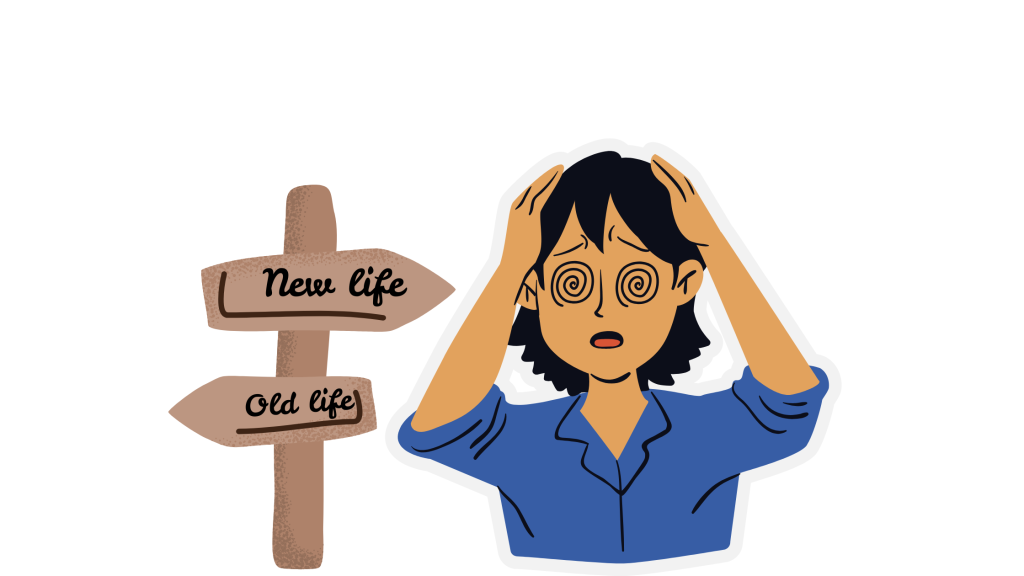
I don’t know about you, but every time I go back home to my small village in Switzerland, I realize just how much I’ve outgrown it. It’s not that the village has changed; in fact, it feels like time has stood still. People have stayed in their familiar circles, not many new faces, and everything feels predictable. Coming back feels like slipping into an old routine, but it’s strange because it doesn’t feel like “home” the way it once did.
Living in Valencia has shown me just how different my life could be. The city is thriving, full of constant change, and I’m constantly evolving with it. In my village, though, there’s this sense of holding onto what’s comfortable and known. It’s a place where people often avoid stepping outside of their comfort zones or talking about anything new or unfamiliar. I’m not trying to sound harsh, but it’s hard to relate to that mentality after the challenges and shifts I’ve faced living in an international, fast-paced city. There’s always something new to discover here, whether it’s meeting people from different countries and cultures, navigating different Spanish accents, or learning about different traditions and ways of living.
All this change sometimes leaves me feeling rootless. When I go back to my village, it feels familiar, but I just don’t connect to it the way I used to. It’s as if I don’t resonate with it anymore. On the other hand, living in Valencia is so enriching. The city’s multicultural vibe keeps me engaged, and there’s always something new to learn. But that same fast-paced environment pushes you to constantly grow, adapt, and evolve, making it harder to feel that same sense of comfort and familiarity I had back home. So, home doesn’t quite feel like home anymore, and the city I live in doesn’t fully feel like mine either. It’s like I’m caught between two worlds—both familiar and foreign in their own way. I still feel connected to my past and the culture I grew up with, yet I’m always being challenged to change and evolve. Through this, I’ve found myself developing a new identity abroad—one shaped by resilience, curiosity, and the ability to adapt.
But even though I sometimes feel like I don’t fully belong anywhere, I’ve come to see it as a positive thing. Change pushes us to evolve, and it’s through facing challenges that we discover who we really are. So, while I may feel like I’m living in two places at once, I’m learning to embrace this sense of duality. It’s all part of my journey, helping me grow and become a better version of myself.
Granted—having to face all of it is certainly challenging, but it’s also immensely enriching. The beauty of embracing this process lies in the growth that comes from it—our adaptability, our ability to understand and connect with different cultures, and the openness to challenges that push us outside our comfort zone. Each day spent navigating this blend of old and new brings more layers to who we are, creating a richness and depth to our identity. And with this in mind, we can turn what often feels like a limbo into something to thrive in.
Growth Through Balancing Cultures and a New Identity Abroad
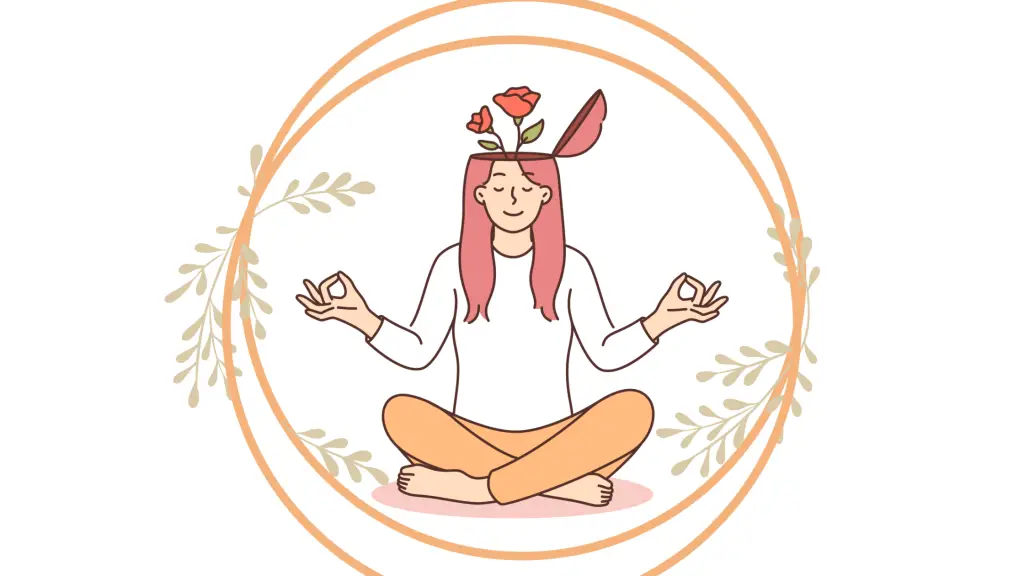
The key is to embrace this duality and use it to our advantage. We don’t have to pick one identity or place over the other; instead, we can build a bridge between the two. In fact, our mixed perspective can actually become our biggest strength. I’ve found that blending my Swiss background, with its strong sense of punctuality and structure, with my Spanish experience, which is more flexible and laid-back, allows me to be more adaptable and, frankly, less stressed. I can move through both worlds with a sense of ease, instead of trying to force everything into one mold.
By drawing from both cultures, we become more adaptable, more understanding, and more resilient. So, while balancing two cultures might sometimes feel awkward or confusing, it’s an incredible opportunity to shape a life that integrates the best of both.
But it’s not just about blending the good stuff—this duality also lets us choose what to keep and what to let go. Over time, I’ve realized I can drop things that don’t resonate with me from either culture. For example, the laid-back attitude toward time in Spain. It used to drive me up the wall—nothing starts when it says it will, and plans often get changed at the last minute. But after some reflection (thank you, journaling!), I realized I could adapt. I’m okay if plans are loose when we’re hanging out with a group of friends, or if we’re meeting outside. But when it comes to things like restaurant reservations or activities where timing really matters, I draw the line. I communicate this with my friends and they understand—just like how I try to be more flexible when plans get adjusted or moved around.
This kind of adjustment also shows up in social situations. I’ve always been more of a “one-on-one or small group” person, so big gatherings where I have to make small talk for hours used to exhaust me. At first, I resisted, but I learned to embrace it as part of the cultural experience. In return, my friends respect that I don’t love big group activities all the time and have made an effort to hang out in smaller groups, just for a quick coffee or casual meetup.
Journaling has been a big part of all this—it’s like a way for me to process all the cultural adjustments and how I’m evolving along the way. It’s where I can think through how I’ve learned to balance being flexible in some situations and firm in others. Writing this out also helps me see how far I’ve come—not just in adapting to the local culture but in being clearer about what I value most. I don’t have to settle for everything, and it’s empowering to decide what I hold on to and what I leave behind.
By choosing what feels right from both sides, you can shape a life that truly works for you—a life that honors where you’ve come from, while embracing the exciting journey of building a new identity abroad as you live between two worlds.. It’s all about staying open, being willing to learn, and knowing where to draw the line. Life doesn’t have to be an all-or-nothing situation. You can take what resonates from both sides, blend them together, and create a unique balance that aligns with who you are now—and who you want to be. Embrace the flexibility, but also trust yourself enough to set boundaries where needed. Finding that balance is where the real growth happens.
The Concept of Home Redefined
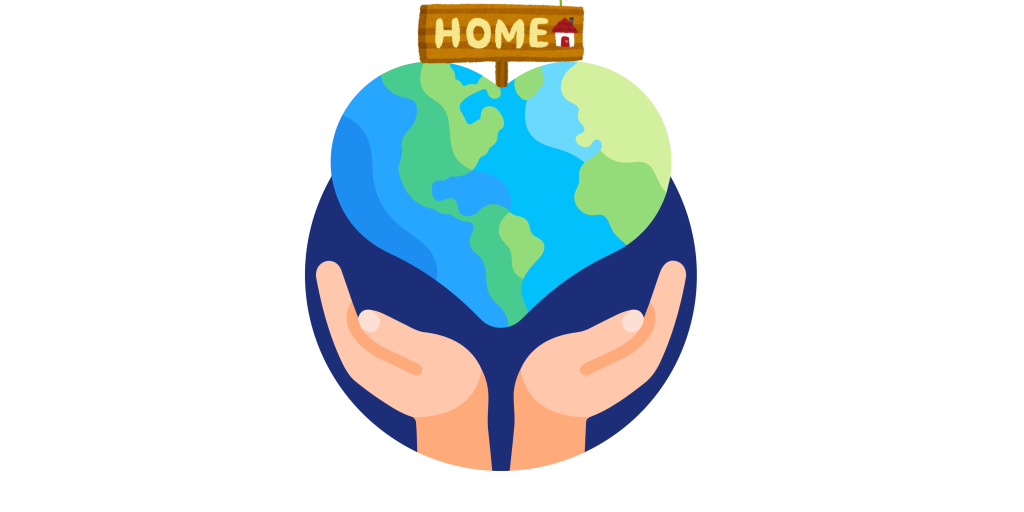
When I first moved abroad, I always thought home was one specific place—a physical location I could point to on a map, where I grew up, where my family lived, where everything made sense. But over the years, that idea of “home” has completely transformed for me. I’ve come to realize that home isn’t just a place. It’s a feeling. It’s about the people, the rituals, and those little everyday comforts that create a sense of belonging, no matter where you are.
Home Isn’t a Place, It’s a Feeling
The more I’ve traveled and lived between countries, the more I’ve realized that home isn’t tied to a specific place. It’s about the connections, the habits, the routine, and how I blend all of this into what feels like home, regardless of where I am.
For me, home is a mix of both my old and new worlds. Even though I live in Spain, I still keep my habit of calling my mom back in Switzerland every night after work, taking her along on my post-work walk along the beach here in Valencia. These small rituals—staying connected to my loved ones from afar—help me feel grounded and anchored. At the same time, the simple act of meeting my friends at our regular spot in Valencia is just as much a part of feeling at home here.
Home also lies in my everyday habits, a mix of both cultures. In Spain, I’ve embraced the routine of taking an afternoon siesta, just as much as I’ve held onto the Swiss habit of having dinner early, which stands out in a country where dinner typically happens no sooner than 8:30 pm. These habits remind me of both worlds—one that is close and familiar, and one that’s evolving with every new connection I make.
All these experiences have shaped what I now think of as my new identity abroad—a blend of cultures, habits, and values that feels uniquely mine. It’s the familiarity of both cultures—the comfort in my daily routines and rituals—that makes me feel at home, no matter where I am.
The Growth That Comes with Embracing a New Identity Abroad
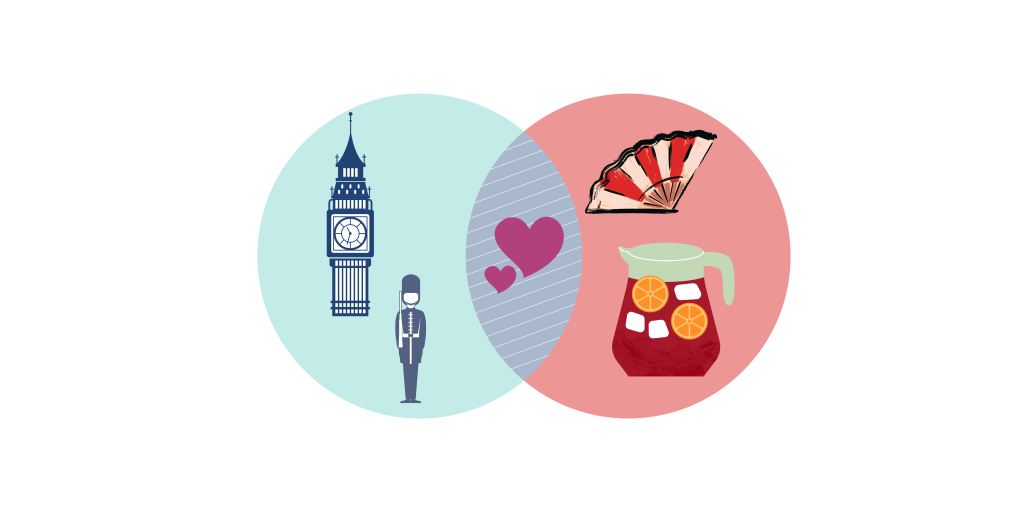
Living in two cultures often accelerates personal growth in ways you might not expect. It forces you to constantly rethink who you are, what you value, and what security looks like. The concept of “home,” which once felt solid and unchanging, begins to shift—it becomes more adaptable, and you realize that where home truly lies is no longer just about geography, but more about the people, routines, and experiences that you make meaningful connections with.
In this process of growth, there’s a deepening of resilience, patience, and empathy. By living between two cultures, you’re confronted with different ways of seeing the world and experiencing life. It challenges the idea that there is a single “correct” way to approach life. Instead, you begin to see the beauty in diversity—the varying ways different cultures value the same things. You come to embrace that change is an inevitable and good thing, an opportunity to learn and evolve rather than a disruption to your life.
What I’ve realized over time is that this growth doesn’t just deepen your sense of self; it transforms your relationships with others. Now, “home” isn’t just the place where you grew up. It’s something more fluid—shaped by who you are now, what you’ve experienced, and the bonds you’ve built. Living between cultures has taught me to approach every part of life with flexibility and a willingness to learn, which only strengthens my sense of connection—wherever that may be. The way I connect with people, the places I inhabit, and how I see my own identity all continue to evolve. This constant evolution of self is what ultimately shapes a new identity abroad—one that holds space for both your roots and your growth.
This journey of living between two cultures doesn’t just expand your worldview—it transforms you. It challenges you to adapt, to let go of old certainties, and to embrace the constant evolution of who you are. In doing so, you discover new strengths within yourself and build connections that go deeper than mere proximity. With each challenge, each opportunity to grow, you learn to appreciate the beauty of change—because it’s not just about surviving, but thriving, in the spaces you create for yourself between the worlds you navigate. And in the end, it’s these very experiences and relationships that become your true sense of “home.”
Conclusion: Embracing Living in Two Worlds
At the end of the day, living between two worlds might feel uncertain or overwhelming at times, but it also makes us stronger. The struggles, the shifts, and the constant balancing act can feel draining, but they help shape who we are. Whether we realize it or not, we’re constantly growing through these experiences—learning about ourselves, other people, and the world around us. For many of us, this process leads to the development of a new identity abroad, one that blends the familiar with the unfamiliar in a unique way.
We can navigate our way through unfamiliar situations, draw from two cultures, and still find our place. There’s an incredible power in that. No matter where you are, you can make a home for yourself and connect with others. It’s a reminder that we’re adaptable and resilient.
If there’s one piece of advice I’d share from all of this, it’s to embrace the process. It’s okay if you don’t always have everything figured out. Just keep showing up, learning, and accepting the changes as they come. And remember, you’re not alone in this journey.
So—what’s your experience with living between cultures? How do you find balance between two (or more) worlds? Share your perspective; I’d love to hear your story!

